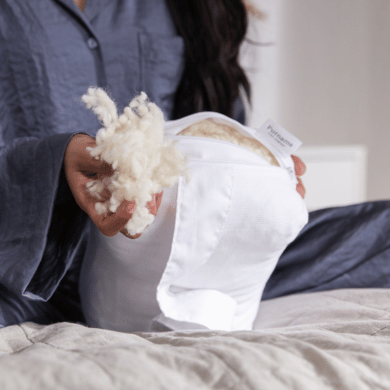
The Science of Snoozing: Are You Hitting ‘Sleep’ or Hurting Your Routine?
That jarring alarm sound cuts through a peaceful dream. Your first instinct? Hit the snooze button. Just nine more minutes. It feels like a small victory against the morning, a tiny rebellion before the day begins. But when the second alarm sounds, you feel even groggier than before. If this sounds familiar, you're not alone. According to a 2022 YouGov survey, nearly 40% of adults admit to hitting the snooze button at least once every morning.
This habit, however, might be doing more harm than good.
That groggy, disoriented feeling has a name: sleep inertia. And your love for the snooze button could be making it worse. While a few extra minutes in bed feels like a luxury, you might be setting yourself up for a less productive, more tiring day.
The American Academy of Sleep Medicine reports that fragmented sleep caused by repeated alarms is linked to decreased cognitive performance, poor memory, and mood disturbances.
This guide will explain the science behind the snooze button and its effects on your sleep quality. We'll explore what happens in your brain and body with each press and offer practical, research-backed advice on how to wake up naturally and feel genuinely refreshed.
It’s time to find out if you should finally break up with your snooze button.
What Happens When You Hit Snooze?
When your first alarm goes off, it's designed to pull you out of your sleep.
But when you hit snooze and drift back off, you send a confusing signal to your brain. Your body starts to prepare for another sleep cycle, which it can't possibly complete in nine minutes.
An ideal night’s sleep involves progressing through several 90-minute sleep cycles explained simply: moving from light sleep into deep, restorative sleep (slow-wave sleep), and finally into REM (Rapid Eye Movement) sleep, where most dreaming occurs. As the night goes on, you spend more time in lighter REM sleep and less in deep sleep. Waking naturally usually happens from a lighter stage of sleep.
When you hit the snooze button sleep becomes fragmented.
Your alarm likely wakes you from REM sleep. Hitting snooze and dozing off can cause your body to dip back into the beginning of a new cycle. When the alarm blares again minutes later, it yanks you out of this stage, causing a physiological jolt. This abrupt re-awakening can trigger a "fight-or-flight" response, increasing your heart rate and blood pressure.
Instead of feeling rested, you feel startled and disoriented. In fact, a study from the National Sleep Foundation found that 57% of people who use their snooze button regularly report feeling less alert in the morning.
The Hidden Impact on Your Sleep Cycle
The main problem with snoozing is that it fragments the tail-end of your sleep, which is rich in restorative REM sleep. Research from Johns Hopkins University highlighted the negative effects of interrupted sleep. The study compared people who had their sleep repeatedly interrupted with those who had fewer hours of continuous sleep.
The results were telling: while both groups felt a drop in positive mood after one night, the group with fragmented sleep continued to feel worse over the subsequent nights.
They also showed a significant drop in slow-wave sleep, the deepest stage of sleep, crucial for feeling rested.
This helps explain why snoozing makes you tired; you’re trading high-quality REM sleep for low-quality, fragmented light sleep. Those extra snoozed minutes aren't restorative.
In fact, a 2022 study published in Sleep Health journal found that regular snoozers lost about six minutes of sleep a night and had more light sleep in the last hour before waking. Moreover, research from Stockholm University found that frequent snoozers experience greater struggles with daytime alertness compared to those who get up with their first alarm.
The Science of Sleep Inertia
Sleep inertia is that groggy, sluggish, and confused feeling you experience just after waking up. It can affect your alertness, memory, and reaction time for anywhere from 20 minutes to two hours.
While everyone experiences some level of sleep inertia, repeatedly hitting the snooze button can make it much worse.
Waking abruptly from a deeper stage of sleep is a primary cause of intense sleep inertia. When you doze between alarms, you're setting yourself up for this exact scenario. Each time the alarm goes off, it's another shock to your system, extending the time it takes for your brain to fully boot up.
The effects of the snooze button on sleep quality can therefore linger for hours, making it harder to feel more awake in the morning.
Interestingly, some recent research from the Journal of Sleep Research suggests that for some chronic snoozers, a 30-minute snooze period might actually help reduce sleep inertia by allowing a more gradual wake-up from a lighter sleep stage.
However, most experts, including those at Harvard Medical School, still agree that for the majority of people, especially those with sleep disorders, relying on the snooze button is a sign of a bigger issue: not getting enough quality sleep.
How to Wake Up Without the Shock
Deciding should you hit snooze or get up comes down to creating a better morning sleep routine. The goal is to make waking up a less jarring experience.
Here are some tips on how to wake up naturally:
- Go to Bed Earlier: The simplest solution is often the most effective. If you’re consistently tired in the morning, you likely need more sleep. The CDC recommends adults aim for at least 7 hours each night. Try going to bed 15-30 minutes earlier each night.
- Maintain a Consistent Schedule: Go to bed and wake up at the same time every day, even on weekends. This helps regulate your body’s internal clock, or circadian rhythm, making it easier to wake up naturally. Studies show that people who maintain a regular sleep schedule report greater energy and alertness during the day.
- Let the Light In: As soon as your alarm goes off, open the curtains. Natural light signals to your brain that it’s time to stop producing melatonin (the sleep hormone) and start the day. A study from the University of Colorado found that exposure to natural morning light can help synchronise your circadian rhythm and make mornings less groggy.
- Set One Alarm and Stick to It: This is the hard part. Set your alarm for the absolute latest you need to wake up and place it across the room. This forces you to physically get out of bed to turn it off, making it much harder to crawl back under the covers.
- Create a Morning Ritual You Enjoy: Give yourself something to look forward to. Whether it's a delicious cup of coffee, a five-minute stretching routine, or listening to your favourite podcast, having a pleasant ritual can make getting out of bed more appealing. Positive morning routines are linked to better psychological well-being.
See also - The Micro-Nap: Can 10 Minutes Really Change Your Day?
Products That Make Mornings Feel Easier
Your sleep environment plays a huge role in your sleep quality. Investing in supportive and comfortable bedding can make a significant difference in how rested you feel, reducing your reliance on the snooze button.
- Ergonomic Sleep Supports: If you wake up with aches and pains, your posture during sleep might be to blame. Ergonomic pillows and supports can help align your spine, ensuring you sleep more deeply and comfortably.
- Putnams Wedge Pillows: Poor posture can restrict airways, leading to snoring and disrupted sleep. A wedge pillow elevates your upper body, which can improve oxygen flow and reduce snoring, helping you and your partner get more restful sleep. Better sleep at night means less need for the snooze button in the morning. Clinical studies have shown that improved airway position during sleep can reduce snoring by up to 50%.
- Breathable Duvets: Overheating is a common cause of restless nights. A breathable duvet helps regulate your body temperature, preventing you from waking up hot and bothered. Consistent, uninterrupted sleep is key to waking up refreshed. According to the Sleep Foundation, room temperature and bedding adjustment can contribute to better sleep efficiency and less nighttime awakening.
See also - The Nap Blueprint: How to Recharge Without Ruining Your Night’s Sleep
Frequently Asked Questions
What is the science behind snoozing?
Snoozing interrupts your natural sleep cycles and fragments your rest. This can trigger a stress response in the body and worsen sleep inertia, the groggy, sluggish feeling after waking, leaving you less refreshed and alert.
Is hitting snooze bad for sleep?
Yes, hitting snooze can harm your sleep. It causes fragmented sleep and worsens sleep inertia, leaving you groggy and less alert in the morning. Waking with your first alarm is best for feeling refreshed.
Does snoozing help or hurt?
For most people, snoozing does more harm than good by disrupting sleep and making you feel groggy. While some studies suggest a short snooze might help certain individuals wake up more gradually, relying on snoozing is usually a sign of poor sleep. Experts recommend waking up with your first alarm for better rest.
What is the 3:2:1 rule for sleeping?
The 3:2:1 rule helps you wind down for better sleep:
- 3 hours before bed: Stop eating and drinking alcohol.
- 2 hours before bed: Stop working or doing stressful tasks.
- 1 hour before bed: Turn off all screens.
Following this helps your body relax and prepares you for restful sleep.
Improve Your Sleep Today
The desire to hit the snooze button is often a symptom of a larger problem, poor sleep quality or an inconsistent sleep schedule. While it might feel good in the moment, that fragmented, low-quality sleep is likely making your mornings more difficult and leaving you feeling tired throughout the day.
By focusing on improving your sleep hygiene, creating a consistent routine, and optimising your sleep environment, you can train your body to wake up more naturally. Breaking up with the snooze button is a challenge, but the reward, waking up feeling genuinely refreshed and ready to take on the day, is well worth the effort.
















Laissez un commentaire